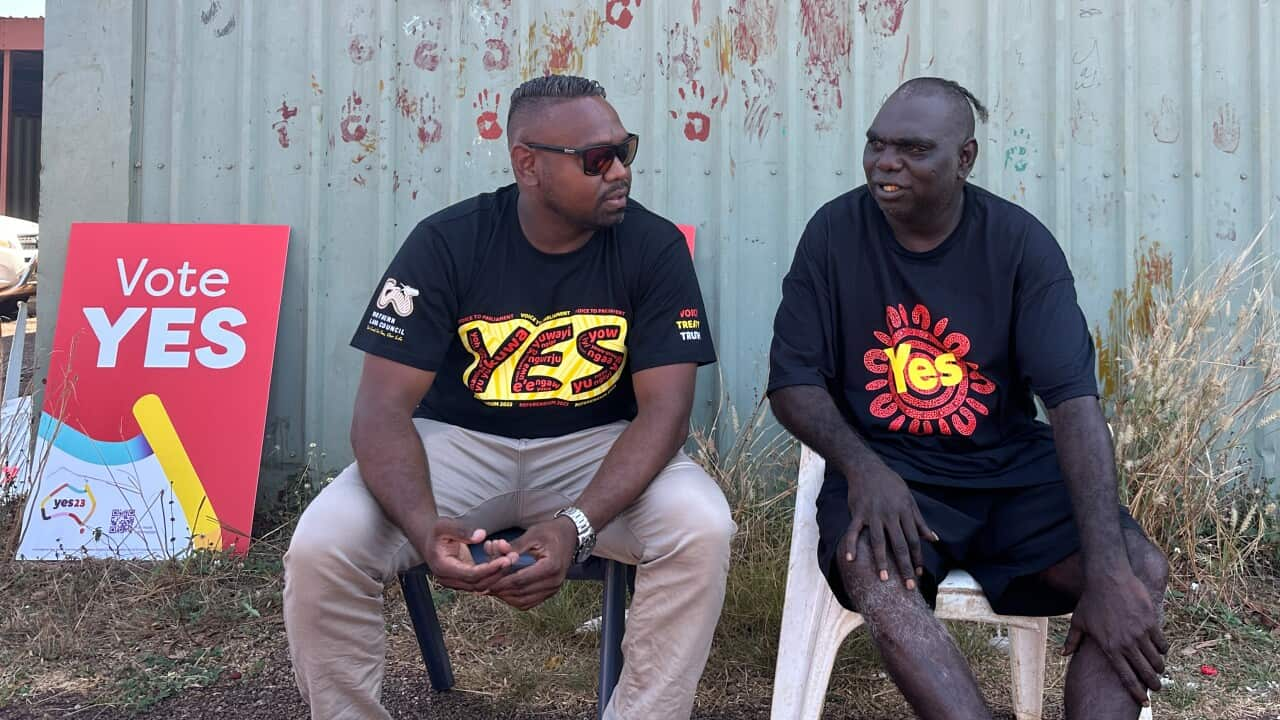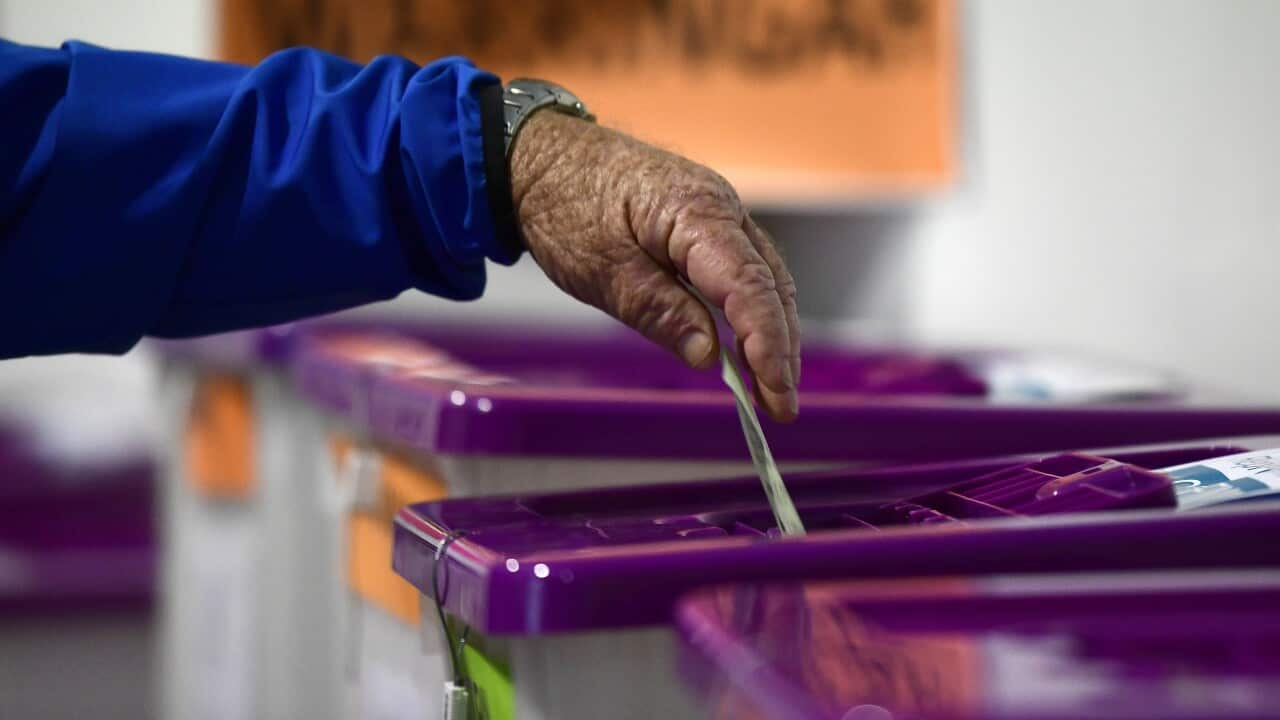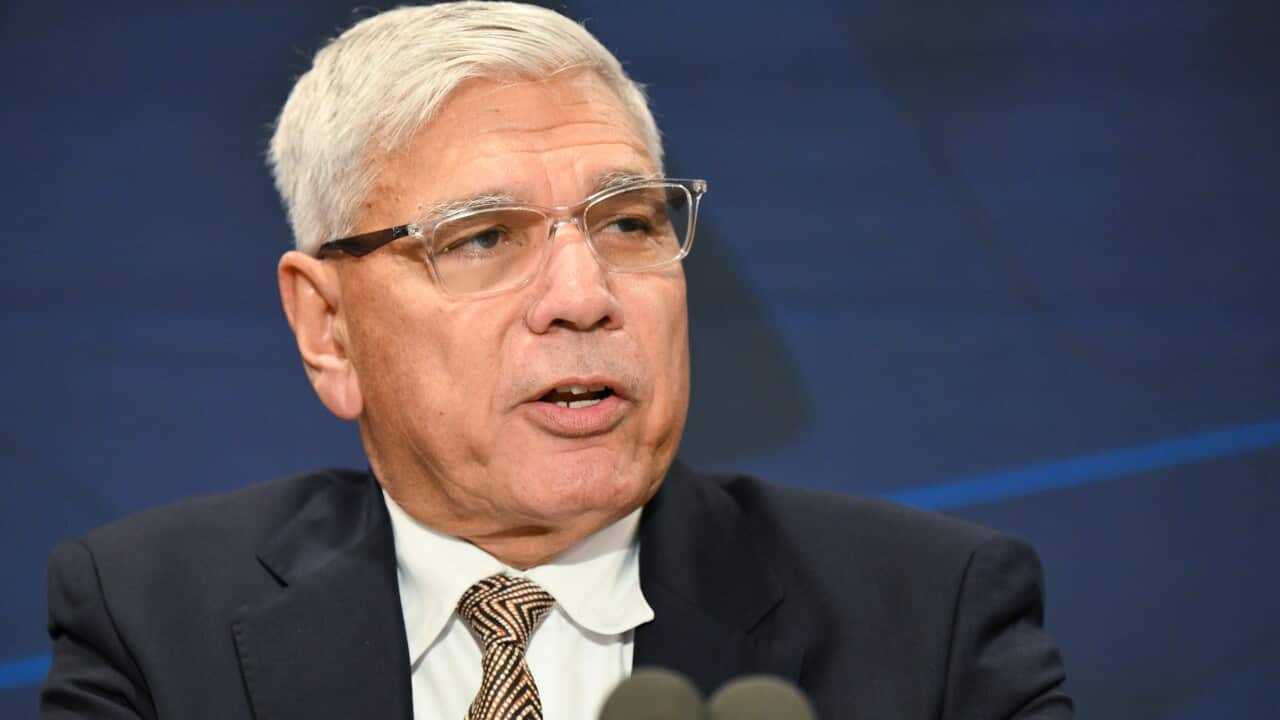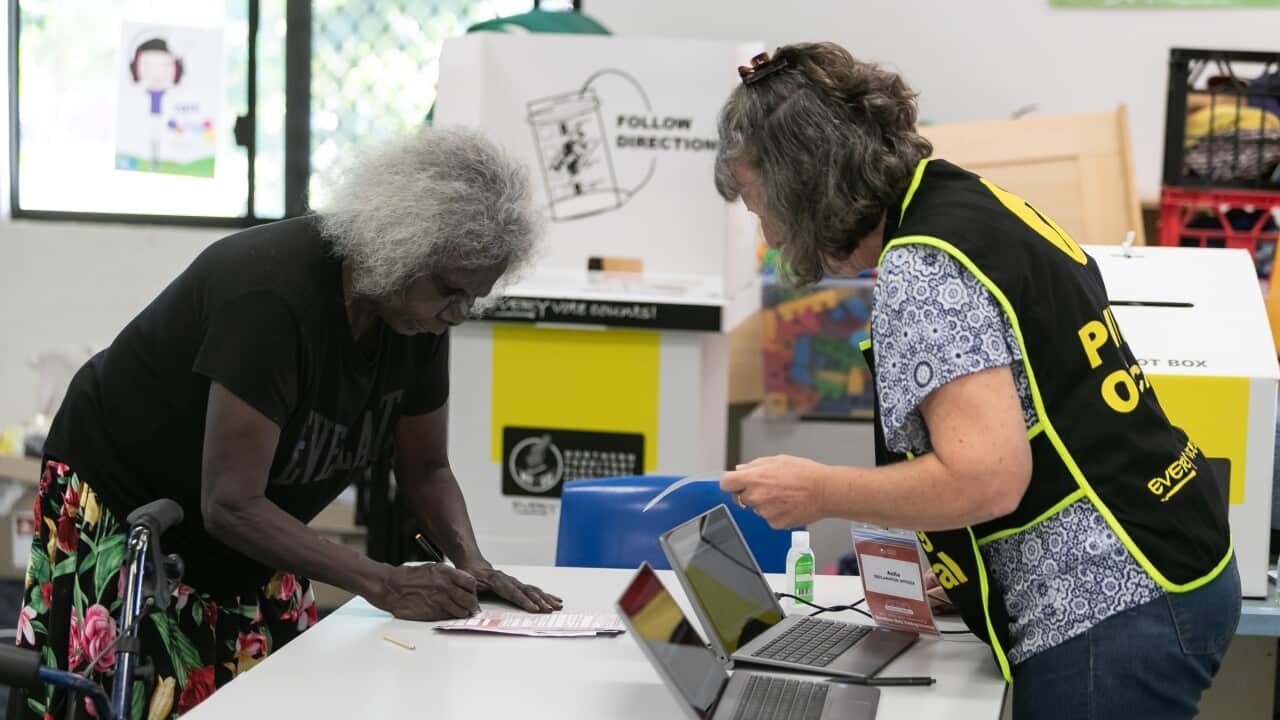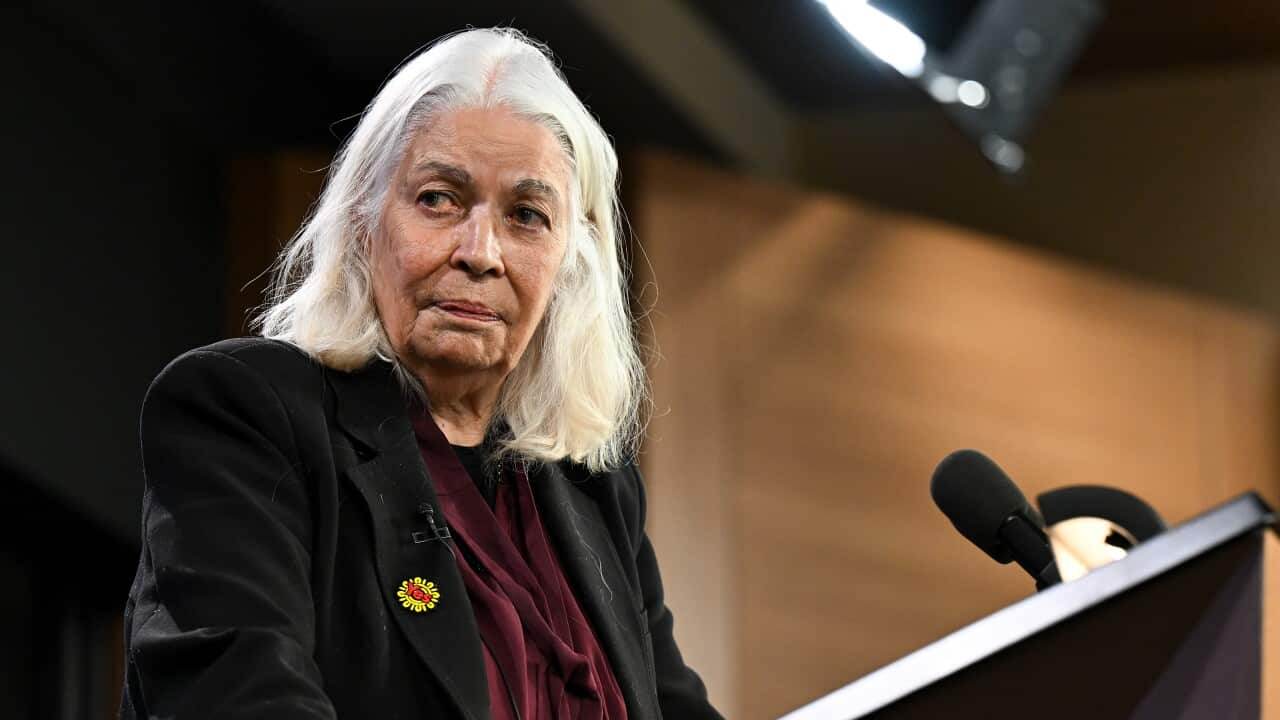WARNING: This story contains distressing elements, including references to suicide.
On a remote island north of Darwin, the Wurrumiyanga Aboriginal community doesn't want to talk about the Voice to Parliament.
"Why are you here?" Marilyn Kerinaiua said as electoral officers rolled into Bathurst Island for the first day of remote voting on Tuesday.
"We don't want to pass onto you our sadness."
She's half joking, but behind her locals begin gathering next to the airstrip with quiet trepidation as they grapple with Sorry Business.
"Our son, a footballer, he died this week, his body is going to Darwin now," Ms Kerinaiua said.
The footballer took his life and the community is racking its brains about how to solve a growing problem.

Marilyn Kerinaiua poses for a photo after voting in the referendum in Wurrumiyanga on Bathurst Island, Northern Territory. Source: AAP / Neve Brissenden/AAP Image
For local Patrick Neenan, the two issues are inextricably linked.
"If we want to talk about change and resources being put back in the community, well this is it," he said.
"I think there's services here but what are they doing?"
Mr Neenan hopes a Voice to Parliament could mean more mental health services in Wurrumuyunga.
"That's what I mean, where's the support? We've got people struggling, we've got to start somewhere," he said.
The AEC launched its remote voter service across the country on Tuesday, with voting centres set up in almost 200 remote communities.

Jeffrey Miller-Puruntatemeri explains how to vote to Edmund Johnson outside the referendum polling centre in Wurrumiyanga on Bathurst Island, Northern Territory. Source: AAP / Neve Brissenden/AAP Image
Electoral officer Mavis Kerinaiua has spent days translating voting information to local languages in an attempt to get friends and family enrolled and voting.
Older people in the community are generally more engaged with the issues, but getting younger ones over the line was a challenge, she said.
"I think they are a bit more shy and unsure.
"Translating into language is really important ... it helps spread the word around the community."
Closer to midday, word has spread around town the booths are open and people begin to file into the makeshift voting centre.
Camp dogs linger at the entrance and children chase each other around the hall as voters mark their 'Yes' and 'No' on ballot papers.
Some voters refuse to talk to the media because of cultural mourning practices, while others are vocal.

Neil Kerinaiua and Jeffrey Miller-Puruntatemeri outside the referendum polling centre in Wurrumiyanga on Bathurst Island, Northern Territory. Source: AAP / Neve Brissenden/AAP Image
"I just voted 'Yes', I've been thinking all last week and the weekend that we aren't on the same level, us and the (others)" she said.
"We need to level up and hopefully with the help of the government we can make a difference."
Federal member for Lingiari Marion Scrymgour said it was going to be tough enticing some locals to cast their ballots as they continue mourning family members.
"The communities right across both islands are hurting, so the voting is going to be slow," she said.
Ms Scrymgour is worried a low voter turnout in Wurrumiyanga will be "weaponised".
"Does that mean Aboriginal people aren't interested?" she said.
"No, that's not true. I think people are hurting and there is a lot of sadness in the community at the moment."
The AEC was considering whether it was appropriate to head into town and ask community members to vote during sorry business.
After a day of polling, there is a mixed feeling in the community about the referendum.
Some say it's "weird" to be voting on a day of mourning, while others argue the two issues cannot be separated.
If this story has raised issues for you, call 13 YARN (13 92 76), beyond blue (1300 224 636) or Aboriginal Counselling Services (0410 539 905).
